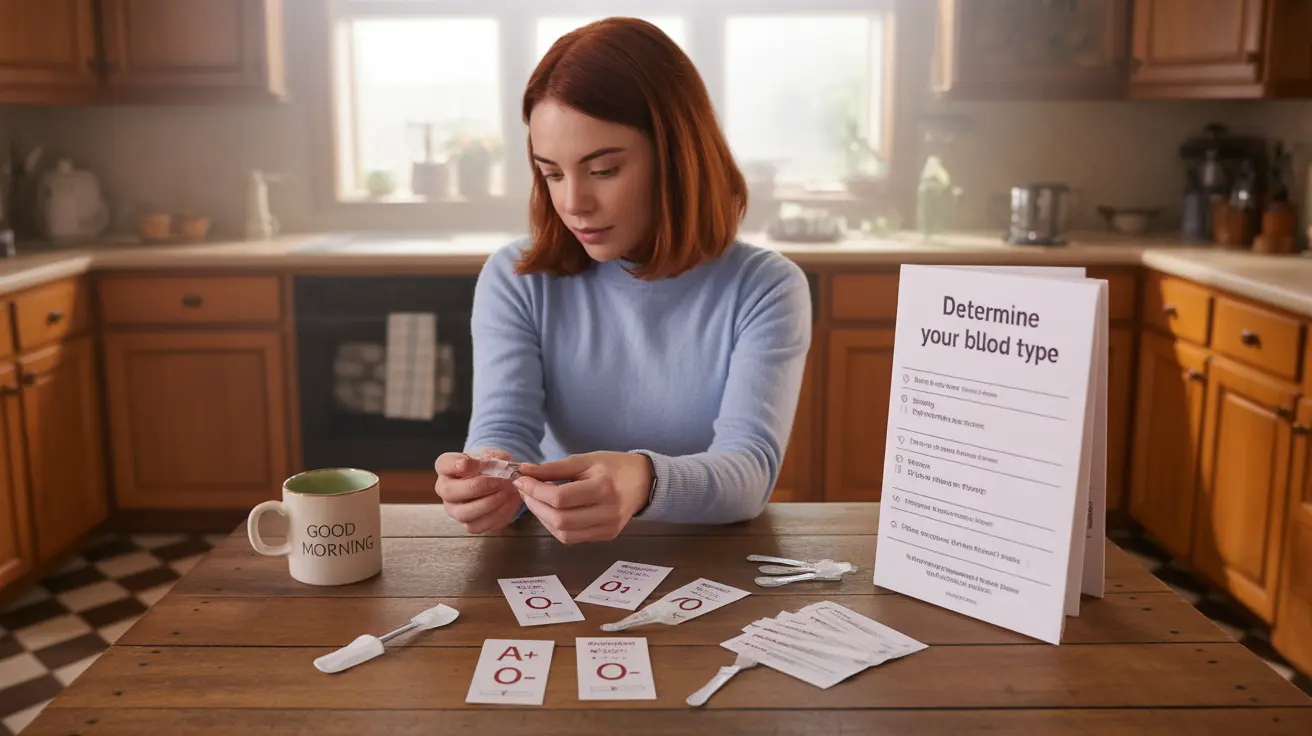Understanding your blood type can be crucial for medical emergencies, pregnancy planning, and overall health awareness. While conventional blood testing at a medical facility is the most accurate method, several alternative approaches can help you determine your blood type without traditional blood draws.
In this comprehensive guide, we'll explore various methods to discover your blood type, from at-home testing options to utilizing existing medical records. We'll evaluate the reliability of each approach and help you choose the most suitable method for your situation.
At-Home Testing Options
Several at-home methods allow you to determine your blood type without visiting a medical facility. These options vary in accuracy and convenience:
Home Blood Type Test Kits
FDA-approved home blood typing kits are available at pharmacies and online retailers. These kits typically include:
- Testing cards with pre-loaded antibodies
- Sterile lancets for finger pricking
- Solution for blood sample dilution
- Clear instructions for proper testing procedures
Saliva-Based Testing Methods
Recent advances in genetic testing have made it possible to determine blood type through saliva samples. These tests analyze specific genetic markers associated with blood type inheritance, though they may be less readily available and more expensive than traditional methods.
Exploring Medical Records
Before pursuing new testing options, consider these existing sources of blood type information:
- Military service records
- Previous blood donation records
- Birth records or hospital documentation
- Past surgical records
- Pregnancy medical records
Blood Donation as a Path to Knowledge
Blood donation centers automatically determine your blood type as part of their screening process. This option offers multiple benefits:
- Free blood typing
- Contribution to community health
- Comprehensive blood screening
- Official documentation of results
Using Family History
While not definitive, understanding your parents' blood types can help narrow down your possible blood type combinations. However, this method should be used only as a preliminary guide rather than a final determination.
Frequently Asked Questions
How can I find out my blood type without having blood drawn?
You can discover your blood type through at-home testing kits, checking existing medical records, donating blood, or using saliva-based genetic tests. At-home kits typically require a tiny finger prick rather than a traditional blood draw.
Is it possible to determine blood type using a saliva test, and how accurate is it?
Yes, genetic testing kits can determine blood type through saliva samples. These tests are generally accurate but may be less reliable than traditional blood testing methods. The accuracy typically ranges from 95-99% when performed correctly.
Can family medical history help identify my blood type without testing?
Family history can help narrow down possible blood types based on parental blood types, but it cannot definitively determine your specific blood type due to the complexity of genetic inheritance patterns. This method should only be used as a preliminary guide.
How reliable are genetic testing kits in identifying blood type from saliva samples?
Genetic testing kits using saliva samples are generally reliable when used correctly, with accuracy rates above 95%. However, they may be more expensive than other methods and should be purchased from reputable manufacturers with FDA approval.
Will blood donation automatically tell me my blood type, and how can I access that information?
Yes, blood donation centers automatically type your blood as part of their screening process. You can access this information by creating an online account with the donation center, requesting a donor card, or contacting the facility directly after your donation.
Remember that while alternative methods can provide insights into your blood type, consulting with healthcare professionals remains the most reliable approach for medical decisions requiring blood type information.




